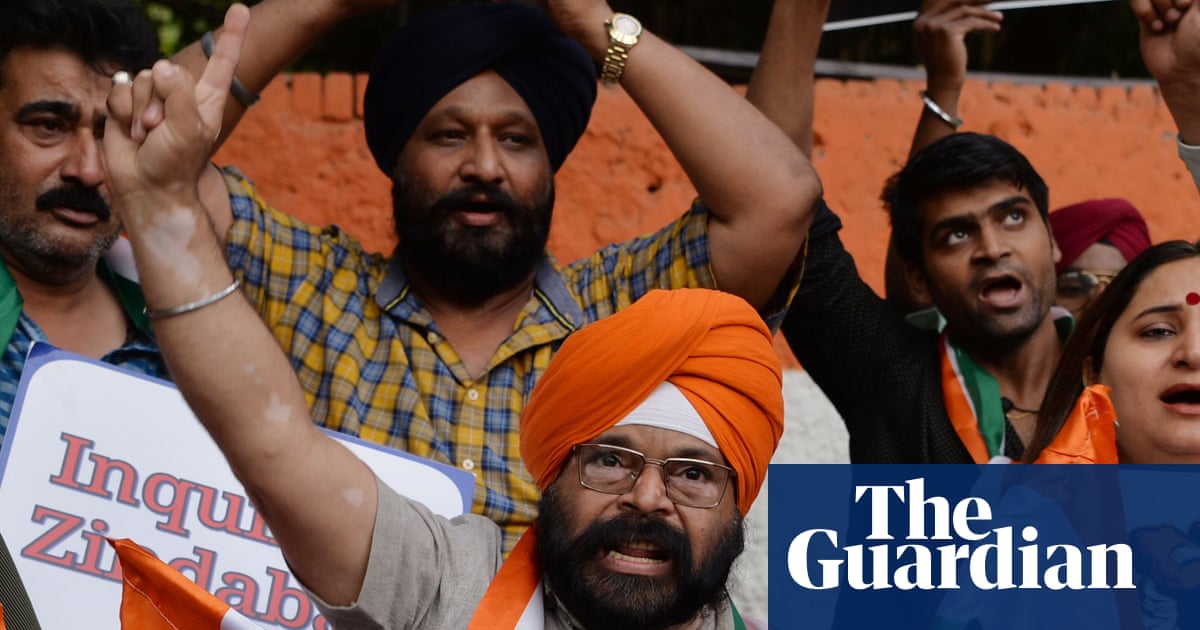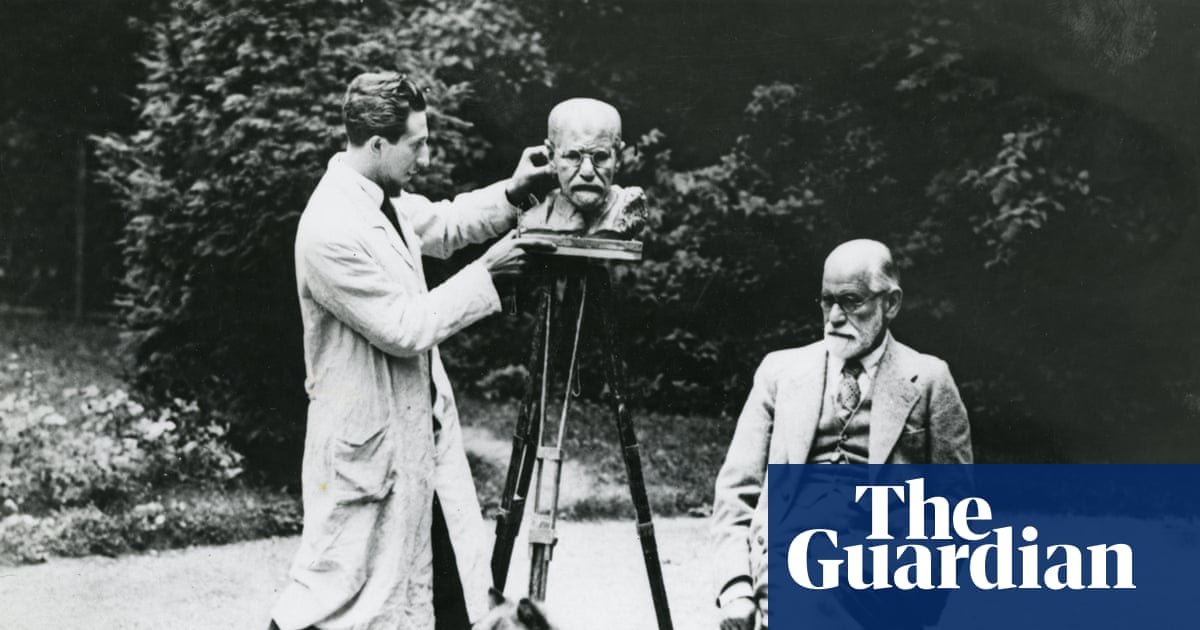The streets of Washington DC, are unmistakable. In addition to noting the city’s signature architecture and public monuments, one will know they are in the nation’s capital when they can barely go half a city block without spotting a US flag. Two weeks ago, those flags were flying at half-staff, but not in recognition of the passing of a high-ranking public official, as would be customary. Instead, the half-staff was ordered by the White House in a highly politicized effort to memorialize the 10 September killing of Charlie Kirk, a 31-year-old podcaster, hard-right party operative, and Maga youth influencer, as an event of national tragedy.
Kirk ruled over an online fiefdom peddling his signature brand of rage-baiting racist, xenophobic, Islamophobic and misogynistic commentary. It wasn’t just his vitriolic style, but also his popularization of cruelty, humiliation and dehumanization of political opponents – especially college students – that attracted millions to his audience. He famously said empathy was “a made-up, new age term that does a lot of damage”.
As a Black woman, I felt no sorrow watching these flags hang limp and lifeless from chrome posts in the stiff, humid summer heat that, even on the eve of autumn, will not unhand a city already stifled by federal threats of military occupation. I felt the same when, just hours after the shooting, the speaker of the House of Representatives called for a moment of silence on the floor for a private citizen who had never held office nor served in the military. (The brief silence erupted seconds later into a shouting match melee when congresswoman Lauren Boebert requested that members hold an open prayer for Kirk from the floor). Just nine days later, the House passed a Republican resolution eulogizing Kirk’s life with a sweeping 310-58 majority.
I felt no mourning when seven teams in the National Football League – the very organization that has long been criticized for its inconsistent and often hypocritical stance on the place of politics in sports – held in-game memorials for Kirk, who never played any professional sport nor held a role within the league. In the Dallas Cowboys stadium in Texas, jumbotrons featured a statesman-like image of Kirk, what one might expect for the passing of a former president or a longtime team affiliate. The grand gesture was drenched in hard-to-miss hypocrisy: forced silence from Black players who were punished for advocating for social justice in 2020, while, in the endzone, a painted astroturf read “End Racism” – a relic of just how fleeting the league’s lip service to the Black Lives Matter movement just a few years ago proved to be.
I feel no grief because these memorials to Kirk are not created for me to grieve. Instead, they seek not only to enshrine Kirk into the national consciousness, but also to foster national memories about what he represents ideologically and culturally. The lionizing is an official effort to coalesce the state into his movement – a brazen proclamation that his consistently hostile white nationalist, homophobic and misogynistic convictions represent the federal government’s interests, and thus, what the presidency believes should be the national priority.
It’s reminiscent of the long aftermath of the civil war, when Confederate memorials were fashioned well into the 20th century not by those seeking to grieve any one individual, but rather by those who wanted to send a message about racial politics in the present. Some people have settled comfortably into a belief that the recent years of anti-racism protests and organizing have successfully toppled enough of these Confederate monuments, that their white-washed histories collapsed with them. But memorials to Kirk conducted by the country’s most powerful institutions are evidence of the revival of a new iteration of neo-Confederate memorialization.
Like the Confederate tributes and monuments of the past, current memorials to Kirk function to throttle any interrogation of their subject. Those who are elevated to the esteem of official national memorializing are commonly – although with notable exceptions –f igures that the public agrees are beyond reproach. In honoring Rosa Parks with the Presidential Medal of Freedom in 1996, for example, Bill Clinton sought to canonize the entire Civil Rights Movement for which she fought. It cemented the era as worthy of national honor because it telegraphed the meaning of democracy and freedom for all Americans.
In contrast, with the insta-extolling of Kirk, Donald Trump, who has announced that his late close personal friend will be awarded a posthumous Medal of Freedom, echoes the intentions behind Confederate memorials of yore. Instead of public recognitions that reflect the long march towards a national reckoning with our past, memorials like those for Kirk elevate his consistent record of hard-right extremism above the reach of public questioning.
Kirk’s style of seizing upon those who challenged his ideologies and punishing his detractors is an agenda that has expanded well beyond Trump’s track record of punishing his personal and political enemies. Though I, like the majority of Kirk’s critics, do not condone his shooting, Kirk himself said gun deaths were “worth it” to maintain gun rights. While rhetoric this extreme, including his claim that Black women in government and media lacked “brain processing power” is being euphemized in tributes as his “advocacy for free speech”, media figures and government employees who openly question if he should be publicly lauded are being fired from their jobs.
Additionally, hundreds of college professors who were doxed, harassed and threatened by Kirk’s organization, Turning Point USA, and its notorious “Professor Watchlist”, which published the names and information of any academics with views Kirk construed as incompatible with his own. It’s curious how a virtue like “doing politics the right way” can be afforded to someone who sought to devastate the lives of scholars and intellectuals.
The aggrandizing of Kirk shares yet another, more lasting legacy with Confederate memorialization. The historian David Blight notes that in the aftermath of the civil war, the call for reconciliation between white northerners and southerners was achieved at the expense of erasing the legacy of slavery from the postbellum narrative. Thus, the reunification of the white citizenry was done wholly on southern terms and exacerbated the racial atrocities that were never addressed in the postwar era, leaving Black Americans to be wholesale lynched and terrorized throughout the south.
Further still, reunification campaigns exonerated and elevated rebel insurgents who were, by definition, traitors and enemies of the state, to a status otherwise reserved for senior statesmen and decorated US veterans. It was a damning declaration that even those who sought to overthrow this country would be celebrated as its heroes before Black Americans would be treated as its citizens. The same tone is struck in the tributes to Kirk that exalt a highly controversial private citizen as though he were a national hero.
Elected officials, journalists and public figures on the left who stress calls for unity do so on the right’s terms, and are reminiscent of the kid-gloved white northerners who sought to rebrand a war fought expressly over human trafficking and bondage into a national moment for celebration of duty, honor and valorous military service on both sides. Those who call for us to honor the life of a man who said the 1964 Civil Rights Act was a “huge mistake”, and who described Martin Luther King Jr, as “awful”, have betrayed those of us who heard Kirk espouse eugenics and replacement theory loud and clear, with such vast online influence that it prompted a 2024 investigation by the Southern Poverty Law Center.
The valorization of Kirk by his far-right defenders is an insult to millions of the most marginalized Americans who lived every day in the crosshairs of his rhetoric. Kirk’s memorialization by his supporters and apologists is but a new opportunity to announce an old message about whose country this is and whose it isn’t.

 3 months ago
95
3 months ago
95

















































